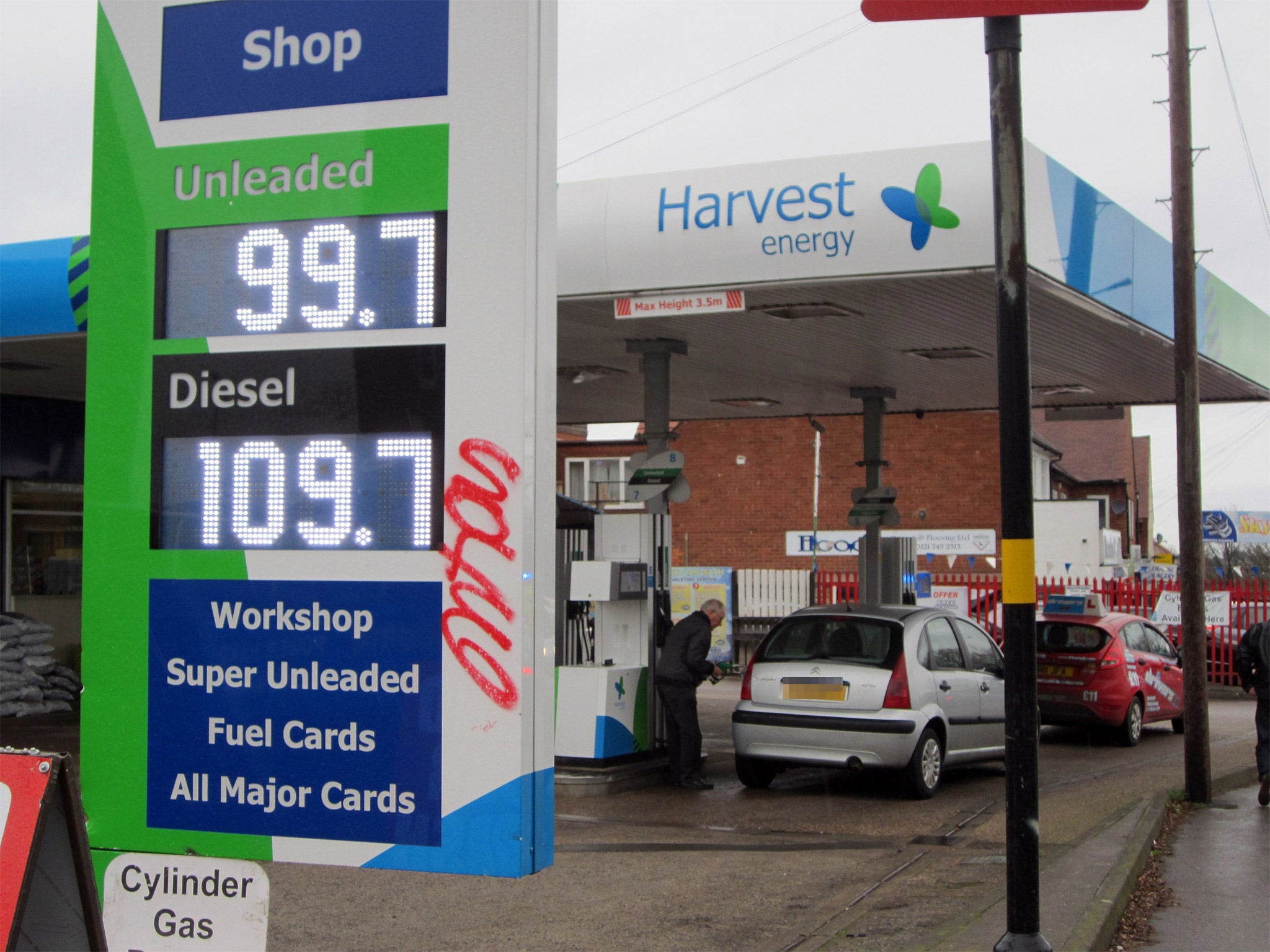Warning of deflation risk after inflation drops to lowest level in 14 years
Amid plunging fuel costs consumer price index grew by 0.5 per cent in 2014

Britain is in danger of following Europe into deflation, economists warned yesterday as inflation dropped to its lowest level in 14 years and the Bank of England Governor predicted further falls.
The consumer price index grew by just 0.5 per cent in the year to December, the lowest annual rate of growth seen since May 2000.
Prices in the eurozone contracted by 0.2 per cent year-on-year in December, putting Britain’s biggest trading partner officially into deflation for the first time since the global financial crisis.
The cost of living in both the UK and Europe has been pushed down rapidly by the plummeting global oil price, which has slashed household energy bills and reduced petrol prices.
The Chancellor, George Osborne, welcomed the low inflation reading yesterday, saying it would make people’s incomes go further and boost living standards.
However, independent economists warned that outright deflation was potentially dangerous for the economy and could set back the recovery if it became entrenched.
“Falling measured inflation gives a very good picture of the failings of current policy, and should be cause for much concern” said Tony Yates of Bristol University and a former Bank of England analyst.
Nick Beecroft of Saxo Bank noted that low inflation was a growing threat across the developed world. “It’s a global phenomenon and threatens to derail recoveries unless nipped in the bud by aggressive central bank action,” he said. “Can everyone stop celebrating the descent of the developed world into deflation?” said Stephen King, the chief economist of HSBC.
The Bank of England’s Governor, Mark Carney, echoed the Chancellor yesterday, saying the figures were good news for households and adding that the Bank could now keep interest rates lower for longer, holding down people’s borrowing costs.
But Mr Carney added that it was his job to bring inflation back to the Bank’s 2 per cent target over the coming two years. “The issue is to make sure that this doesn’t become more generalised and that we don’t see low and falling prices more generally, because a little bit of inflation is good: it greases the wheels of the economy,” he told the BBC.
Mr Carney said inflation was likely to “drift down” further over the coming months. He added that the Bank would be on the lookout for signs of household expectations of inflation turning negative – another indication of damaging deflation – but he said that he still expected the Bank of England gradually to increase its interest rates over the coming two years as prices pick up.
The Office for National Statistics (ONS) said December’s inflation figure, which was lower than most analysts in the City of London had expected, was driven down by large declines in gas and electricity prices as well as fresh falls in petrol prices compared with the same month last year.
Gas was 2.1 per cent cheaper than December 2013 and food was 1.9 per cent cheaper, said the ONS. Liquid fuel prices were down 22.6 per cent.
The Bank’s Governor is required by law to write a formal open letter to the Chancellor whenever inflation is more than one percentage point away from its 2 per cent target and to explain why.
Mr Carney will write such a letter next month, at the time of the Bank’s next quarterly economic forecasts.
Since the Bank was granted independence in 1997 it has been forced to write 14 letters to explain why inflation was one point higher than the target. This will be the first the Bank has had to explain why inflation was below the target.
Subscribe to Independent Premium to bookmark this article
Want to bookmark your favourite articles and stories to read or reference later? Start your Independent Premium subscription today.

Join our commenting forum
Join thought-provoking conversations, follow other Independent readers and see their replies